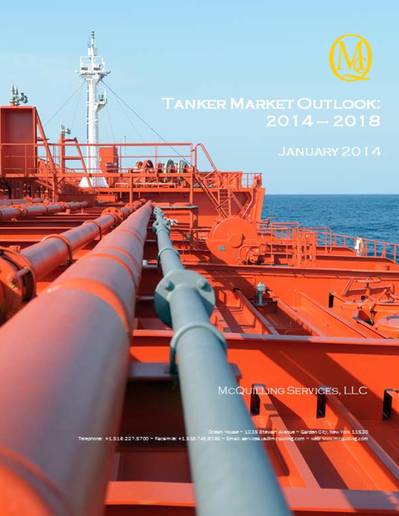Global Oil Transportation System Imperfect, Explains Forecaster
In the second of a four part series of explanatory notes to McQuilling Services '2014-2018 Tanker Market Outlook' an important element of the company's forecasting process regarding fleet utilization and availability (included for the first time in the current report) is discussed in the following brief excerpt.
The marine transportation system described by the global carriage of crude oil and petroleum products is by nature imperfect and highly inefficient. If it were perfectly efficient, tankers would be able to load their next cargoes in the same location that they discharged their last cargoes and sail loaded at full capacity on all voyages. However, in reality, tankers spend a significant portion of their trading lives sailing empty or otherwise inefficiently deployed.
As a result of these inefficiencies, the actual supply of tonnage available to meet transportation demand is less than implied by the mathematical summation of the carrying capacity of the world tanker fleet. This is because the total number of vessels available at any given time is reduced by the inefficiency that stems from the nature of the transportation system and by commercial decisions of owners and charterers in the marketplace. Characterizing and quantifying these inefficiencies is of significant value in understanding how vessel supply relates to demand in the tanker industry.
McQuilling uses the vessel utilization and availability concepts summarized in the above diagram, and as described fully in their note (available at: https://www.mcquilling.com/) to adjust the average inventory of tankers across tanker sectors able to meet tanker ton-mile demand.














